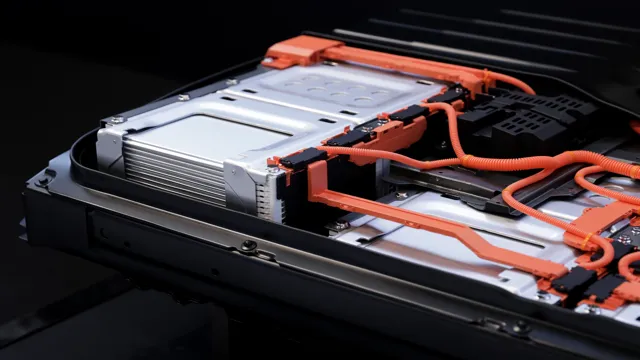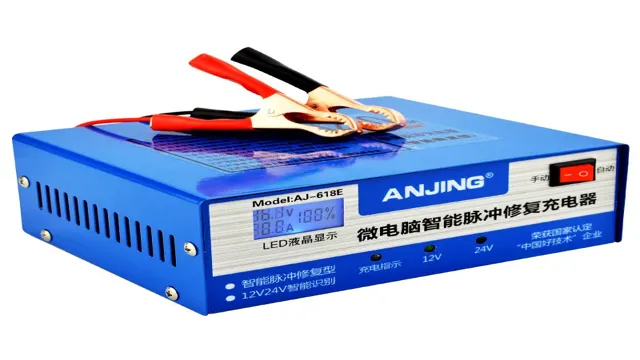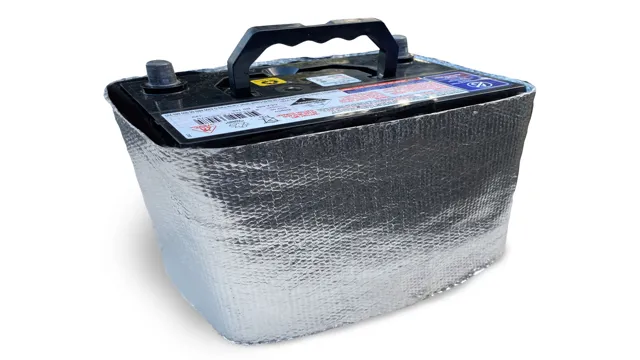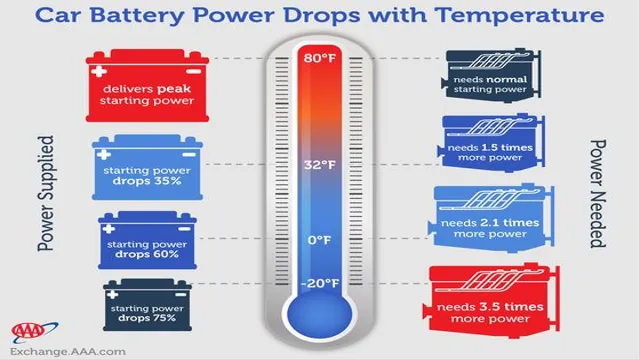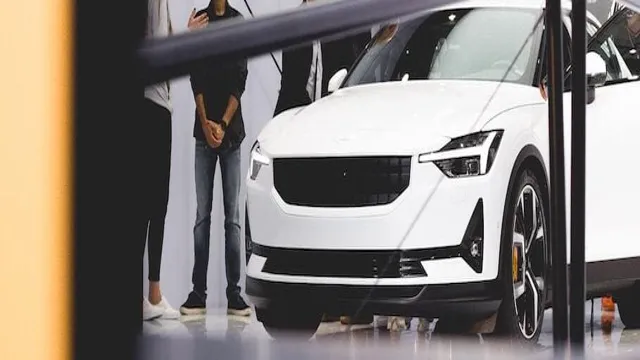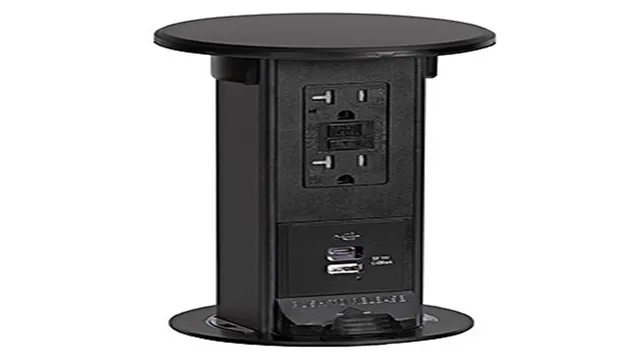Powering Up Your Solar System: The Advantages of Using Electric Car Lithium Batteries
Electric cars and solar power are two of the most popular and innovative technologies of our time, and combining the two is a smart way to reduce our carbon footprint and minimize our reliance on fossil fuels. One of the key components of an electric car is its lithium-ion battery pack, which stores the energy that powers the vehicle. However, it can also be utilized for solar energy systems to store the energy generated by solar panels.
The use of lithium batteries in solar power systems is increasing in popularity due to their efficiency, longevity, and reliability. Lithium-ion batteries are high-performing and have a longer lifespan than other battery types, making them ideal for use in solar panel systems. Furthermore, they require minimal maintenance and are more environmentally friendly.
Electric car lithium batteries for solar power systems are an excellent way to reduce the cost of electricity bills while also promoting energy independence and sustainability. They can be used to store excess energy produced by solar panels during the day, which can then be used to power homes and businesses at night. In conclusion, electric car lithium batteries can serve a dual purpose in both the transportation and energy industries.
They are eco-friendly, efficient, and cost-effective, making them an excellent choice for those who want to reduce their carbon footprint and save money on their electricity bills. So, why not consider investing in an electric car lithium battery for your solar power system today?
Why Choose Lithium Batteries?
When it comes to choosing a battery for your electric car or solar panel system, lithium batteries are becoming the go-to choice for their numerous benefits. Compared to traditional lead-acid batteries, they are much lighter, have a longer lifespan, and can be charged much faster. This means you can spend more time on the road or utilizing your solar power without worrying about running out of juice.
Another advantage of lithium batteries is their higher energy density, which means they can store more power in a smaller space. This is especially important for electric cars that need a large amount of energy to power their motors. Overall, investing in an electric car lithium battery for solar is a smart choice that can provide you with more reliability, better performance, and increased efficiency.
Advantages of lithium over other battery types
Lithium batteries are becoming increasingly popular due to their numerous advantages over other battery types. One of the main benefits of lithium batteries is their high energy density, which means they can store more energy per unit of weight and volume than other types of batteries. This makes them ideal for use in portable electronic devices such as smartphones, laptops, and cameras, where energy efficiency is critical.
Lithium batteries also have a longer lifespan compared to other batteries, making them a more cost-effective choice in the long run. They are also rechargeable and hold their charge well, even when not in use for extended periods. With their compact size, fast charging, and longer lifespan, lithium batteries are a smarter choice compared to other battery types.
So if you’re in the market for a new battery, consider choosing lithium batteries for optimum performance and energy efficiency.
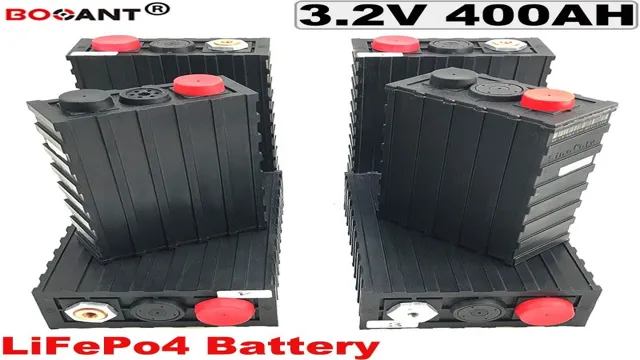
Long-term cost savings with lithium batteries
When it comes to choosing the right batteries for your business, you have a lot of options. But if you’re looking for long-term cost savings, lithium batteries are definitely the way to go. Not only do they last longer than other types of batteries, but they also require less maintenance and have a much lower risk of failure.
This means that you’ll spend less time and money replacing and repairing your batteries over time, which can really add up. Plus, lithium batteries are more environmentally friendly than other types of batteries, making them a great choice for businesses that are committed to sustainability. So if you’re looking for a reliable, cost-effective way to power your equipment and vehicles, choose lithium batteries and start saving today!
Solar Power and Electric Cars: A Perfect Match
The combination of solar power and electric cars is a match made in heaven. With the increasing demand for renewable energy and sustainable transportation, electric cars powered by lithium batteries, charged by solar panels, couldn’t make more sense. The beauty of this match is that electric cars can use their rechargeable lithium batteries to store excess energy generated from solar panels during the daytime.
At the same time, the car’s battery can supplement the home’s electricity during cloudy or less sunny days. This makes them a perfect solution for people who want to save money on gasoline, reduce their carbon footprint, and have access to clean and affordable energy. With more and more solar-powered charging stations popping up around the world, electric cars are even more practical and convenient than ever before.
The electric car lithium battery for solar is a fantastic innovation that is changing the way we think about energy and transportation.
How solar power complements electric vehicles
Electric vehicles and solar power are a match made in heaven. As more and more people switch to electric cars and become reliant on the grid, the need for clean and sustainable energy sources grows. This is where solar power comes in, offering a perfect complement to electric vehicles.
By utilizing solar panels to generate electricity, EV drivers can power their cars using renewable energy sources, reducing their carbon footprint and contributing to a cleaner environment. Additionally, solar power allows for energy independence, providing EV owners with a reliable and affordable source of energy. So whether you’re an EV owner or someone who simply wants to reduce their carbon footprint, solar power is a perfect solution that complements the growth of electric vehicles.
Sustainability benefits of solar-powered electric cars
Solar-powered electric cars are gaining popularity as more people seek sustainable transportation options. The beauty of these cars lies in their ability to harness the sun’s energy and convert it into electrical power to propel their engines. By using solar energy, electric cars can avoid the harmful emissions that come from burning fossil fuels, making them an eco-friendly option.
In addition, solar-powered electric cars have low operating costs since they rely on free energy from the sun. This is a major advantage over traditional fossil fuel cars that require constant refuelling. The environmental benefits of solar-powered electric cars are enormous, making them an ideal solution for eco-conscious consumers looking for sustainable transportation.
Overall, Solar power and electric cars create a perfect match that offers an efficient, cost-effective, and sustainable transportation solution.
How much solar power do you need to charge your EV?
Solar power and electric cars complement each other perfectly. If you’re looking to charge your EV using solar energy, the amount of solar power you will need depends on several factors. The capacity of your EV’s battery, the number of panels you install, the region you live in, and your daily driving habits all play a role.
On average, a standard solar panel generates 300 watts of power per hour. A good rule of thumb is to install enough panels to produce the amount of energy needed to cover your daily driving habits, taking into account the hours of direct sunlight your region receives. In general, you will need a system capable of generating 30-50 kWh per day to charge your EV.
While your initial investment will be significant, the long-term benefits of charging your EV with solar power will save you hundreds or even thousands of dollars every year. In the end, it’s worth considering a solar-powered EV charging solution not only for the cost savings but also for reducing your carbon footprint and promoting a greener lifestyle.
The Best Lithium Batteries for Electric Cars
If you are looking for the best lithium batteries for your electric car or solar project, there are a few options to consider. One great choice is the Tesla Powerwall, which is a high-capacity battery that can be used for both home energy storage and electric cars. Another great option is the LG Chem Resu, which is a compact and efficient battery that is ideal for residential use.
For those who want a more budget-friendly option, the BYD B-Box Pro is a reliable and affordable battery that is perfect for smaller solar installations. No matter which option you choose, a high-quality lithium battery will provide reliable and efficient power for your electric car or solar project. By investing in a quality lithium battery, you can ensure that your energy needs are met while reducing your carbon footprint and saving money on energy costs.
Top-rated lithium battery brands for EVs
When it comes to electric cars, one of the most crucial components is the lithium-ion battery. With so many options on the market, it can be overwhelming to choose the right one. However, there are a few top-rated lithium battery brands that stand out above the rest.
Tesla is known for having some of the highest-performing batteries, with their Model S having a range of up to 373 miles on a single charge. Another popular brand is LG Chem, which produces batteries for several car manufacturers including Volkswagen and General Motors. Panasonic is also a trusted brand, supplying batteries for Tesla and Toyota.
Ultimately, the choice of battery depends on the specific needs of the driver, such as range, performance, and cost. It’s important to do research and compare options before making a decision.
Factors to consider when choosing a battery
Electric cars are becoming more popular as people look for ways to reduce their carbon footprint and save on fuel costs. One important factor to consider when choosing an electric car is the type of battery that it uses. Lithium batteries are the most popular choice for electric cars, and for good reason.
They are lightweight, efficient, and have a long lifespan. However, not all lithium batteries are created equal. When choosing a lithium battery for your electric car, you should consider factors such as the battery’s capacity, energy density, and charging time.
Additionally, you should look for a battery from a reputable manufacturer with a proven track record of producing high-quality, reliable batteries. By taking these factors into consideration, you can ensure that you choose the best lithium battery for your electric car.
How to Install a Lithium Battery in Your Electric Car
If you’re looking for a more eco-friendly way to power your electric car, you may want to consider installing a lithium battery for solar power. Lithium batteries are more lightweight and efficient than traditional lead-acid batteries, and they can be charged through solar panels instead of relying solely on grid power. To install a lithium battery, you’ll need to first disconnect your old battery and remove it from the car.
Next, mount the lithium battery in your car and connect it to the charging and monitoring systems. Make sure to follow the manufacturer’s instructions and take any necessary safety precautions. Once installed, your new lithium battery should provide reliable and efficient power for your electric car.
Step-by-step guide to DIY installation
If you’re looking to upgrade your electric car’s battery, installing a lithium battery can be a great DIY project. Here are the steps to follow: Research and choose the right lithium battery for your car.
Consider factors like the battery’s voltage, capacity, and size. Disconnect the old battery and remove it from your car.
Make sure to follow proper safety procedures and wear protective gear. Install the new lithium battery according to the manufacturer’s instructions.
This may involve connecting wires and mounting the battery in the right location. Test the new battery to ensure it’s working properly.
Start your car and check for any warning lights or errors. Once you’re sure everything is working as it should, clean up and dispose of the old battery properly.
Keep in mind that installing a lithium battery can be a complex and potentially dangerous project, so if you’re not confident in your abilities, it’s best to seek professional help. With the right tools and knowledge, however, you can upgrade your electric car’s battery and enjoy longer driving ranges and better performance.
When to seek professional installation help
Installing a lithium battery in your electric car can be a DIY project if you have experience with electrical work and are confident in your abilities. However, if you’re not comfortable working with high voltage or don’t have the necessary tools, it’s best to seek professional installation help to ensure your safety and protect your investment. A lithium battery is a substantial upgrade to your electric car, providing increased range and better performance.
Before starting the installation process, make sure you have the right battery size and compatible components. It’s also essential to follow the manufacturer’s instructions carefully and avoid shortcuts. Taking the time to install your lithium battery correctly will ensure a safe, efficient, and long-lasting driving experience.
Remember, professional help may seem like an additional cost, but it can save you money and headaches in the long run.
Conclusion
In summary, the marriage between electric cars and lithium batteries for solar power is a match made in heaven. These batteries not only provide sustainable energy to our vehicles but contribute to reducing our carbon footprint and paving the way towards a greener future. So, let’s embrace this powerful duo and drive towards a brighter and cleaner tomorrow!”
FAQs
What is an electric car lithium battery?
An electric car lithium battery is a rechargeable battery that is used to power electric vehicles.
What is the advantage of using a lithium battery for solar power?
Lithium batteries are lightweight, have a longer life span, and can discharge at a higher rate than other types of batteries, making them ideal for use in solar power systems.
Can a lithium battery be recycled?
Yes, lithium batteries can be recycled. They contain valuable elements such as lithium, cobalt, and nickel that can be extracted and reused.
How long does a lithium battery last compared to other battery types?
Lithium batteries have a longer life span than other types of batteries, with an average of 3-5 years of use. Additionally, they can be charged and discharged more times than other batteries, making them a popular choice for electric cars and solar power systems.


